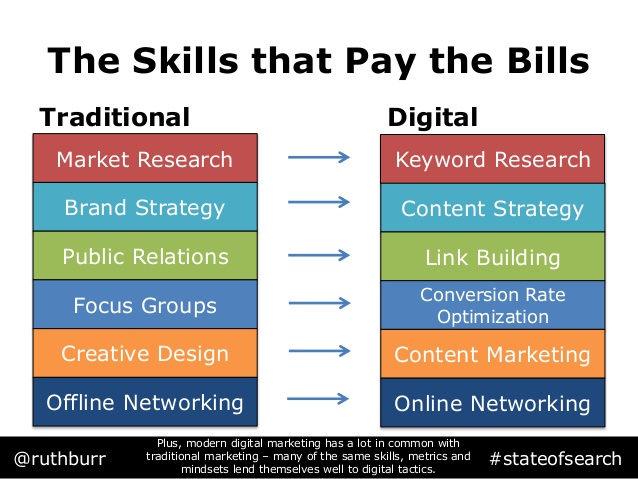
The Problem in Hiring Skilled Marketers
Businesses have embraced digital technologies at a rapid pace. By 2020, digital technologies could add $1.36 trillion to the world’s total economic output. And yet, digital marketers who took a competency test scored an average of just 38%, with only 8% of those tested showing entry-level skills. What is going wrong?
Root cause of the shortage in digital marketing skills
I’ve noticed a few factors contributing to this shortage of skilled digital marketers, but they all point towards two root causes: insufficient training and lack of awareness.
A decline in marketing training
The digital marketing industry is young and changing frequently; global best practices are still being refined, defined, and presented. Businesses are nervous about investing in a large scale set of global digital tools or skills that could become outdated in a few months or years. As a result, they are failing to provide essential training for their marketing professionals. Only 18% of companies in the US, 20% of those in the UK, and 25% of those in Ireland provide essential digital training.
At the same time, marketers are scared that their profession might not exist in another 10 or 20 years, so they aren’t pushing to invest in more training for a job that might be redundant.
The digital skills gap vs. the marketing skills gap
There are really two parallel skills gaps among digital marketing professionals: a digital skills gap, and a marketing skills gap. Many successful older marketers have excellent marketing skills, but their lack of basic digital skills is limiting them in their career choices. On the other hand, the new generation of marketers are digital natives, but they don’t have the traditional marketing skills that are vital for success in any form of marketing.
On top of that, marketers today have to work under shorter deadlines and greater pressure, which is squeezing out their creativity. Only 17% of today’s marketing professionals say that they can comfortably keep up with short timeframes, so how are the next wave of under-trained marketing professionals going to keep up?
Lack of awareness brings a decline in new marketing recruits
The Don Draper era where working long days and nights in an advertising agency on a brand new product launch are long gone. They’ve been packed away, along with the swanky lunches and expensive gifts given to top clients and their account team. This is largely due to the eroding margins in advertising and the increasing use of alternative digital media which is self-serving. In addition, advertising has become far more sophisticated, multi-channel and largely distrusted by Generation Z.
As a result, not enough talented young people are choosing a career in marketing. But this is also caused by lack of awareness about the potential and diversity of the industry. In one survey, 51% of college-age students said that marketing had never or hardly ever been suggested as a career during their school years.
Marketing recruiters have to struggle against the allure of famous tech companies, which start headhunting young people for tech jobs before they even graduate. For example, Apple has a number of programs encouraging children and teens to learn its coding language, Swift, as a fast track to software engineer and developer jobs.
What’s The solution?
One way to tackle the shortage of skilled full stack marketers is to invest in training more of them. For Millennials, this could mean training in traditional marketing techniques; for older marketers, it could be digital skills training.
While training is the proposed solution, there are a few different ways to deliver it. At the moment, students spend years getting a degree, only to end up applying for a job that doesn’t need one, but that does demand skills and certifications they don’t have. As Alison Dunlin Salisbury, president of Entangled Studios, writes in Forbes, “platform-centric skills are becoming [...] essential.”
It’s not enough to have a general degree; you also need to show a certification from a specific, relevant platform or provider. LinkedIn, Google and Facebook of course, provide such certifications for their platforms.
There are already many partnerships between tech companies and colleges, training budding software developers in both soft skills and specific tech capabilities. Marketing agencies and corporations could use the same approach for the new wave of digital marketers. In fact, it’s already begun: the Digital Marketing Institute has an accredited qualification in digital marketing, covering basic and advanced digital marketing skills.
Businesses can also offer apprenticeships to invite new marketers into their team and build up their fundamental digital and marketing knowledge, as a way of nurturing their future marketing professionals.
The marketing skills shortage is real, but it can be cured
The shortage of skilled digital marketers is real and serious, but we have the ability to fix it. By increasing training for both new and experienced marketers at all ages and stages, we can close the digital marketing skills gap and raise the number of skilled, confident full-stack marketers serving all industries.








